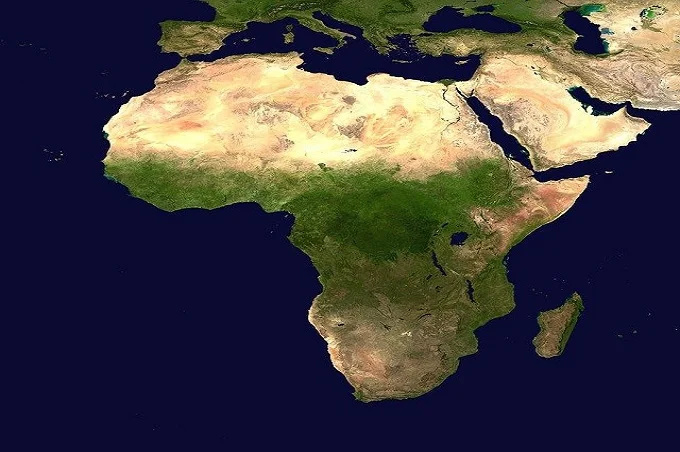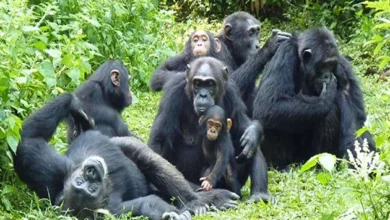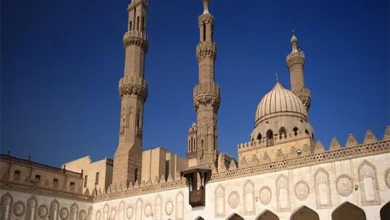The most spoken languages in Africa

With a population of over 1.2 billion people, Africa is the world’s most populated continent. As a result, it’s hardly unexpected that various languages are spoken here, over 2,000 to be precise.
However, it’s unfortunate that the three top widely spoken languages in Africa did not originate from Africa. Among these languages, some are more widely spoken than others; here are the top 11 most spoken languages.
11 most spoken languages in Africa
1. English
In Africa, English is the most widely spoken language. According to many estimates, there are around 700 million English speakers in Africa. In this regard, the Dark Continent is no different from other parts of the world. The fact that certain African nations were European colonies until the middle of the twentieth century further explains the prominence of English in Africa.
The local populace had little option but to acquire this language after British colonialism. In nations such as Botswana, Gambia, Kenya, Malawi, Namibia, Nigeria, and others, English speaking may be heard on the streets.
2. Arabic
Arabic is a Semitic language spoken by more than 280 million people worldwide. Egypt, Algeria, Morocco, Mauritania, Libya, Eritrea, and a few more countries recognize it. It is also used as an unofficial language by citizens of numerous nations. To get the latest stories, install our app here
Modern Standard Arabic is mostly used in contact with most Arabic speakers. This is the language used to write the language and may be found in books and media. On the other hand, classical Arabic is mostly used in academic settings to study the language.
3. French
Because of French colonialism, the French language is deeply ingrained throughout Africa. This language is spoken in over 26 African nations by over 110 million people. The majority of people speak it in West Africa. Surprisingly, Africa has the highest concentration of French speakers in the world.
Mali, Guinea, Seychelles, Ivory Coast, Gabon, Senegal, and many other nations use the language. To get the latest stories, install our app here
4. Swahili
Swahili is an African language that is widely spoken. It is a member of the Bantu language group, of which he is the most prominent member. According to experts, this language is spoken by roughly 100 million people, mostly in Central and East Africa.
Swahili has become the language of international communication in the area, with speakers ranging from Mozambique to Somalia and from the western beaches of the Indian Ocean to the Democratic Republic of the Congo.
Swahili has maintained its essence from the early days of commerce till the 21st century, an achievement not attained by other languages. Swahili was traditionally a trade language designed to promote connections between some Southern and Eastern African populations.
To get the latest stories, install our app here
5. Igbo
Igbo is the native language of the Igbo people and one of Nigeria’s official languages, spoken by about 24 million people, the majority of whom live in Cameroon and Equatorial Guinea.
Igbo contains around 20 dialects and is descended from the Volta-Niger branch of the Niger-Congo language family, with the Igbo people being Africa’s one of the biggest ethnic groups.
6. Shona
Shona is a Bantu language, and it is the most widely spoken language in Zimbabwe, with about 10 million speakers. Shona is the official language in Zimbabwe, but English and Ndebele are the most widely spoken languages. To get the latest stories, install our app here
The Karanga, the Zezuru, and the Korekore are three separate Shona dialects. Shona is a Bantu/Nguni language that employs the Latin script as its writing system.
7. Hausa
The Hausa language, which more than 50 million people speak, is one of the Semito-Hamitic languages. It is one of Niger’s, Nigeria’s, Ghana’s, Benin’s, and Cameroon’s official languages. Although Hausa has certain characteristics with several Sudanese languages, it has an evident affinity with Semitic, Cushitic, and Berber languages.
Because of its importance in trade, commerce, and business in Nigeria and the West African area, Hausa has made it into the list of most spoken languages in Africa. Aside from that, because of the vast quantity of literature available, it is one of the few African languages taught at international universities.
8. Amharic
Amharic is Ethiopia’s national language and belongs to the Semitic language family. It is spoken by 18 to 21 million people who live in Ethiopia. Several other nations, including Eritrea, Canada, the United States, and Sweden, have Amharic speakers. The word “Amharic” is derived from the Amhara area in northern Ethiopia, considered the language’s historic heartland. To get the latest stories, install our app here
9. Zulu
One of South Africa’s official languages is Zulu. Zulu is the second most frequently spoken Bantu language, and it is a branch of the Bantu/Nguni family of languages. Zulu has more than 10 million speakers and is the second most extensively spoken Bantu language (after Shona). The Khoisan language has affected Zulu, written using the Latin alphabet.
The dialects of Zulu and Xhosa are so close that many people mistake them for one language.To get the latest stories, install our app here
10. Yoruba
One of West Africa’s most widely spoken languages is Yoruba, with approximately 30 million speakers in Nigeria, Benin, and Togo combined. Ekiti, Ijebu, Oworo, Ijesha, and Akoko are among the more than 15 varieties of this African language.
Ghana, Ivory Coast, Liberia, and Sierra Leone all have communities that speak Yoruba as a first language.
11. Oromo
Oromo is an important language spoken in Ethiopia, Kenya, Somalia, and Egypt. This language is spoken by over 30 million people, accounting for more than 40% of Ethiopia’s population. Between 1974 and 1991, the Oromos were barred from writing this language. It was even considered a crime. Oromo scholars eventually adopted a Latin script, which was thereafter used to teach reading and writing.




